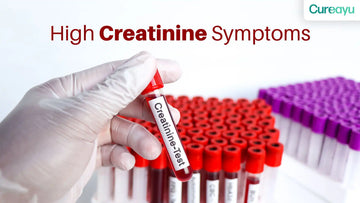Low sperm count, medically known as oligospermia, is a common issue affecting male fertility. It is defined by having fewer than 15 million sperm per milliliter of semen, which can significantly reduce the chances of conception. Many factors contribute to low sperm count, and understanding the symptoms is crucial for timely intervention and treatment. This blog delves into the primary reasons for low sperm count, its symptoms, potential impacts, and effective treatments to improve sperm health and overall fertility.
What Are The Main Reasons For Low Sperm Count
Sperm count decrease reasons can vary widely, encompassing lifestyle factors, medical conditions, and environmental influences. Understanding these causes can help in addressing and managing the issue effectively.
- Hormonal Imbalances: Hormones produced by the hypothalamus, pituitary gland, and testicles are necessary to create sperm. Imbalances in these hormones can lead to low sperm production.
- Testicular Problems: Conditions such as varicocele (swelling of the veins that drain the testicle), infections, and injuries can affect sperm production and health.
- Lifestyle Factors: Smoking, excessive alcohol consumption, drug use, and poor diet can all contribute to decreased sperm count and motility.
- Environmental Exposures: Exposure to heavy metals, radiation, pesticides, and other environmental toxins can negatively impact sperm production and quality.
- Medical Treatments: Treatments like chemotherapy and radiation therapy for cancer can impair sperm production. Certain medications, such as anabolic steroids, can also have adverse effects.
- Health Conditions: Chronic illnesses, such as diabetes, cystic fibrosis, and infections, can lead to reduced sperm count. Obesity also plays a significant role in male infertility.
- Stress: Physical and emotional stress can interfere with hormones needed for sperm production. Prolonged stress can lead to significant decreases in sperm count.
Symptoms Of Low Sperm Count
- Difficulty Conceiving: One of the most apparent symptoms of low sperm count is the inability to conceive a child after a year of regular, unprotected intercourse. This can be frustrating and emotionally challenging for couples.
- Problems with Sexual Function: Men with low sperm count may experience issues such as low libido or erectile dysfunction, which can further complicate attempts to conceive.
- Pain, Swelling, or Lumps in the Testicles: Testicular pain or discomfort, swelling, or the presence of lumps can indicate underlying conditions affecting sperm production.
- Reduced Facial or Body Hair: Hormonal imbalances associated with low sperm count can lead to a decrease in facial or body hair, as well as other signs of chromosomal or hormonal abnormalities.
- Recurrent Respiratory Infections: Some genetic conditions that cause low sperm count can also lead to recurrent respiratory infections due to the interplay between the reproductive and respiratory systems.
- Decreased Muscle Mass: Hormonal issues contributing to low sperm count may also result in reduced muscle mass and other signs of testosterone deficiency.
- Gynecomastia: An imbalance of hormones can cause breast enlargement in men, known as gynecomastia, which is often linked with fertility issues.
What If Sperm Count Is Low
When faced with a low sperm count, it's essential to understand the potential impacts and take proactive steps to address the issue. Low sperm count can significantly reduce the likelihood of natural conception, leading to emotional stress and relationship strain. However, various treatments and lifestyle changes can improve sperm health and increase the chances of conception.
- Consult a Specialist: Seeking advice from a fertility specialist or urologist is crucial for a thorough evaluation and diagnosis.
- Lifestyle Modifications: Making positive changes to diet, exercise, and habits can improve sperm health.
- Medical Treatments: Depending on the underlying cause, medications or surgery may be necessary to address low sperm count.
Also Read: Delving Into the Causes of Male Infertility: Solutions and Treatments Discussed
Treatment Of Low Sperm Count
- Lifestyle Changes: Adopting a healthier lifestyle by quitting smoking, reducing alcohol intake, avoiding recreational drugs, and maintaining a balanced diet can improve sperm production.
- Medications: Hormonal treatments and medications, such as clomiphene citrate or letrozole, can help address hormonal imbalances and improve sperm count.
- Surgery: Surgical procedures, such as varicocelectomy (to repair varicoceles) or vasectomy reversal, can help restore normal sperm production.
- Assisted Reproductive Technologies (ART): Techniques like in vitro fertilization (IVF) or intracytoplasmic sperm injection (ICSI) can assist in achieving pregnancy despite low sperm count.
- Antioxidant Supplements: Supplements like vitamin C, vitamin E, zinc, and selenium can help protect sperm from oxidative stress and improve overall sperm health.
- Avoiding Environmental Toxins: Reducing exposure to environmental toxins and pollutants can enhance sperm quality and count.
- Stress Management: Practicing stress-reducing techniques, such as yoga, meditation, and regular exercise, can help improve hormonal balance and sperm production.
Conclusion
Low sperm count can be a challenging and distressing condition, but understanding its causes, symptoms, and treatments can empower men to take proactive steps toward improving their fertility. Lifestyle changes, medical treatments, and assisted reproductive technologies offer various avenues to address low sperm count and increase the chances of conception. If you suspect you have a low sperm count, consulting a healthcare professional for a thorough evaluation and personalized treatment plan is essential. With the right approach and support, overcoming low sperm count and achieving parenthood is possible.











